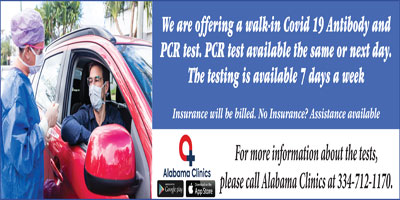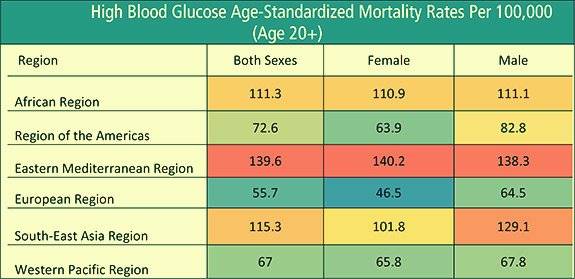Diabetes - Don’t Sugar Coat It
Viewed: 2902
Posted by: Al Clinics
Date: Dec 31 2018 10:43 AM
Diabetes Mellitus, commonly known as just Diabetes, is a disease that occurs when your blood glucose, AKA blood sugar, is too high. Blood glucose is your main source of energy and is obtained through the food we eat. Insulin, a hormone made by the pancreas, helps glucose from the food get into your cells to be used for energy. However, sometimes your body doesn’t make enough – or any – insulin. When this happens, glucose stays in your blood and doesn’t reach your cells. Over time, having too much glucose in your blood can cause health problems. Although diabetes has no cure, there are steps you can take to manage your diabetes and live a healthy life. Over 30 million people in the United States have diabetes and it is the 7th leading cause of death in the United States. Those diagnosed with diabetes are twice as likely to have heart disease or a stroke at an earlier age.
The 3 most common types of diabetes are: type 1 diabetes, type 2 diabetes, and gestational diabetes.
Type 1 Diabetes
Type 1 diabetes is also referred to as childhood-onset diabetes. In this case, your body does not make insulin because your immune system attacks and destroys the cells in your pancreas that make insulin. Type 1 diabetes is usually diagnosed in children and young adults, but can appear at any age. People diagnosed with type 1 diabetes need to take insulin every day to live. This type of diabetes may be caused by a genetic predisposition or be the result of faulty beta cells in the pancreas that normally produce insulin.
Type 2 Diabetes
This is the most common type of diabetes and is largely the result of excess body weight and lack of physical activity. People who are diagnosed with type 2 diabetes do not make or use insulin well. You can develop type 2 diabetes at any age, however it occurs more often in middle-aged and older people. There is a known steady decline in beta cell production of insulin in type 2 diabetes that contributes to worsening glucose control.
Gestational Diabetes
Gestational diabetes happens during pregnancy and is hyperglycemia with blood glucose values above normal but below those diagnostic of diabetes. However, once you’ve had gestational diabetes you have a greater chance of developing type 2 diabetes later in life. Gestational diabetes should be closely monitored as those diagnosed with it are at an increased risk of complications during pregnancy and delivery.
Early symptoms of untreated diabetes are related to elevated blood sugar levels and loss of glucose in the urine. These symptoms include:
- Excessive excretion of urine (polyuria)
- Increased thirst (polydipsia)
- Constant hunger
- Weight loss
- Fatigue
- Nausea and vomiting
Simple lifestyle measures have been shown to be effective in preventing or delaying the onset of type 2 diabetes. To help prevent type 2 diabetes and its complications, people should:
- Achieve and maintain a healthy body weight
- Be physically active for at least 30 minutes 3-5 days a week
- Eat a healthy diet; avoid sugar and saturated fats
- Avoid tobacco use
Early diagnosis can be accomplished through relatively inexpensive testing of blood sugar. Once diagnosed, treatment involves lowering blood glucose levels, diet, and exercise. When diabetes is not well managed, serious complications can develop that threaten health and endanger life such as:
- Heart disease
- Stroke
- Kidney disease (diabetic nephropathy)
- Eye problems (cataracts and glaucoma)
- Vision loss
- Dental disease
- Nerve damage (diabetic neuropathy, erectile dysfunction)
- Foot problems
- Leg amputations
If you or someone you know is experiencing the symptoms above, feel free to walk-in or make an appointment at Alabama Clinics!
2812 Hartford Hwy, Suite 1
Dothan, AL 36305
(334) 712-1170
<- back




1.jpg)











.jpeg)





 (2)1.jpg)




.jpeg)


 (1).gif)


.jpg)
.jpg)




1.jpg)































1.jpg)
 (2).jpg)








1.jpeg)



.jpg)









.jpg)












.jpg)




.JPG)



